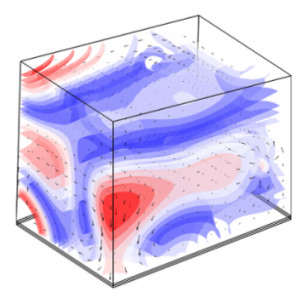What's in it for companies?
Horizon Europe stimulates participation of companies across the whole programme, but with a particular focus on close-to-market support.
Opportunities for companies in Horizon Europe
Companies play a vital role in translating research & development results into innovation & also in making sure great ideas are picked up by end-users, customers and the market.
Below you can find an overview of the main financing instruments for companies in Horizon Europe.
Also check out the video series on funding opportunities for companies in Horizon Europe & Digital Europe that is available in our NCP Flanders video corner. This video series explains the most relevant funding instruments for companies and the support you can get when you intend to take part in a project under these two programmes.
The European Innovation Council (EIC)
SMEs can apply for direct funding under the European Innovation Council which runs since 2018. The EIC offers different funding opportunities:
The EIC accelerator targets highly innovative and disruptive SMEs showing a strong ambition to develop, grow and internationalize, regardless of whether they are high-tech and research-driven or non-research conducting, social or service companies. The SME can obtain a grant of maximum 2,5 million euros and/or benefit from equity financing of up to 15 million euros. For research projects that are not yet ready to conquer the market there are also the EIC pathfinder and the EIC transition instruments.
These above-mentioned EIC instruments offer both bottom-up calls and calls with predefined thematic priorities and address the financing gap in developing high-potential, rather high-risk ideas which should ultimately be brought to the commercial market.
On top of these periodic calls you have the EIC Prizes where the European Commission will reward innovations from companies/organizations that deliver the best possible innovative solution for a pre-defined challenge
The European Institute of Innovation and Technology (EIT)
Over a decade ago the European institute of innovation and technology (EIT) was set up to increase Europe’s capacity to better bridge the gap between R&D and the market.
To this purpose, eight knowledge and innovation communities (KICs) were formed within the EIT and their role is threefold: develop innovative products & services, start new companies and train a new generation of entrepreneurs. Each KIC is fully independent and focuses on a specific sectoral challenge (e.g. urban mobility, active ageing, food, etc.). All companies, including SMEs, can either become a full partner of a KIC, collaborate in their activities or look for extra funding within the community. The details of all innovation communities can be found on this webpage.
Pillar II- Global challenges
In Horizon Europe there is again a part reserved for calls that look at how innovative products and services can tackle societal challenges at the global level (e.g. pandemics, climate change, etc.).
There are mainly three types of calls: coordination and support actions (CSA), Research and Innovation Action (RIA) and Innovation Actions (IA). Though there are opportunities in CSA and RIA calls, most companies will look towards the IA’s as they are more aimed at achieving concrete innovations. Generally a project will take about 4-5 years from the proposal to the final stages so for many companies it can be regarded as a lengthy period.
MSCA
Finally, also the Marie Skłodowska-Curie actions (MSCA) can be relevant: these actions have as a focus to train researchers in both the academic and non-academic sector. MSCA calls that could be of interest for companies are Postdoctoral Fellowships, Staff Exchanges, Cofund and Doctoral Networks.
Testimonial

PBNv2 - a MSCA ITN in the field of automotive R&D
The Marie Skłodowska-Curie Action (MSCA) European Innovative Training Network “PBNv2 - Next generation Pass-By Noise approaches for new powertrain vehicles” started in May 2017. Their research has the shared objective of investigating the possibilities to decrease pass-by noise of vehicles.
The project is a collaboration between 17 research institutions and companies in the European automotive R&D and provides a learning environment for 14 PhD fellows. The Belgian partner is the Noise and Vibration Research Group of KU Leuven, and this project is one of the many Horizon 2020 MSCA Innovative Training Networks that the KU Leuven research group participates in.

